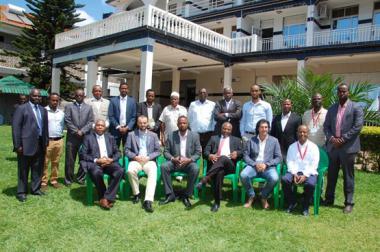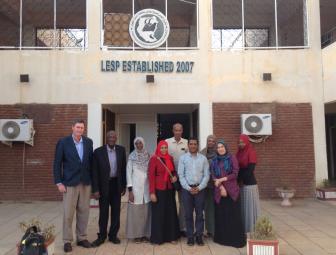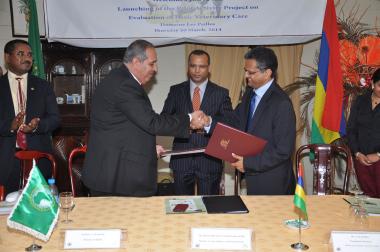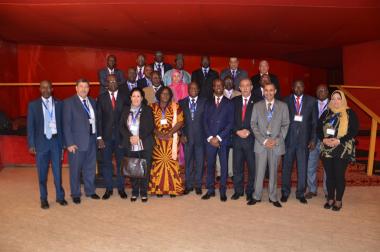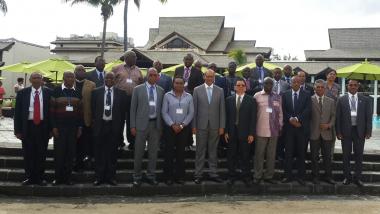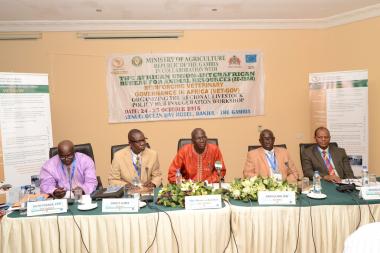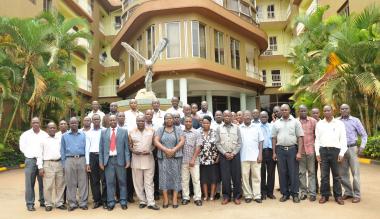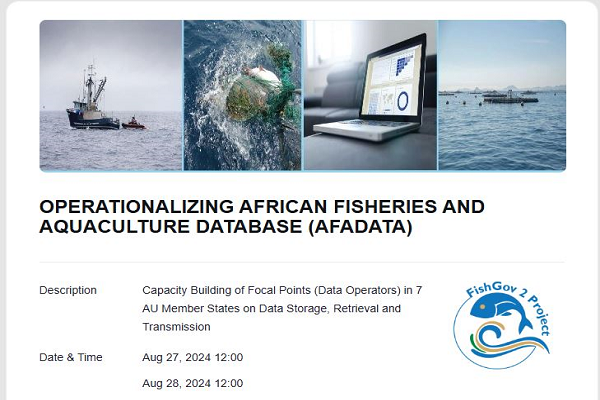
August 27-28, 2024
Transforming the landscape of fisheries and aquaculture management across Africa, the African Fisheries and Aquaculture Database (AfaData) is set to revolutionize data handling within these sectors. Funded by the European Union under the FishGov2 Project, this initiative being driven by AU-IBAR aims to provide a centralized platform for data storage, retrieval, and transmission, enabling more effective management of aquatic resources. With AfaData, Africa is taking a bold step towards sustainable development and long-term resilience in fisheries and aquaculture.
On August 27-28, 2024, AU-IBAR is organizing a two-day training session focused on building the capacity of Focal Points (Data Operators) from seven AU Member States: Sudan, South Sudan, Central Africa, Democratic Republic of Congo (DRC), Somalia, Tchad, and Libya. This training is specifically designed to equip participants with the necessary skills to effectively manage and utilize AfaData, ensuring accurate and efficient data handling within their respective countries.
The data operators will be introduced to the functionalities of AfaData, followed by detailed training sessions on user account management, theme management, and dashboard functionality. Participants will also learn about in-country user accounts, language switching, password policies, and data sharing. This interaction session will also focus on data entry and retrieval, standardizing data, selecting units, and exporting data. The operationalization of AfaData is a significant milestone in the African Union’s efforts to strengthen fisheries and aquaculture management across the continent. By enhancing the capacity of data operators in key Member States, the AU is ensuring that these countries are better equipped to manage their fisheries and aquaculture resources effectively, contributing to the broader goals of sustainability and food security.
As AfaData continues to be rolled out and utilized, it will play an increasingly vital role in providing accurate and timely data, which is essential for informed decision-making and policy development at both the national and continental levels.
Read more:
Building Capacity for Data-driven Fisheries and Aquaculture Management
Fostering Collaborative Excellence: A Transformative Learning Visit by University of Cape Coast Fisheries and Aquaculture experts to AU-IBAR

